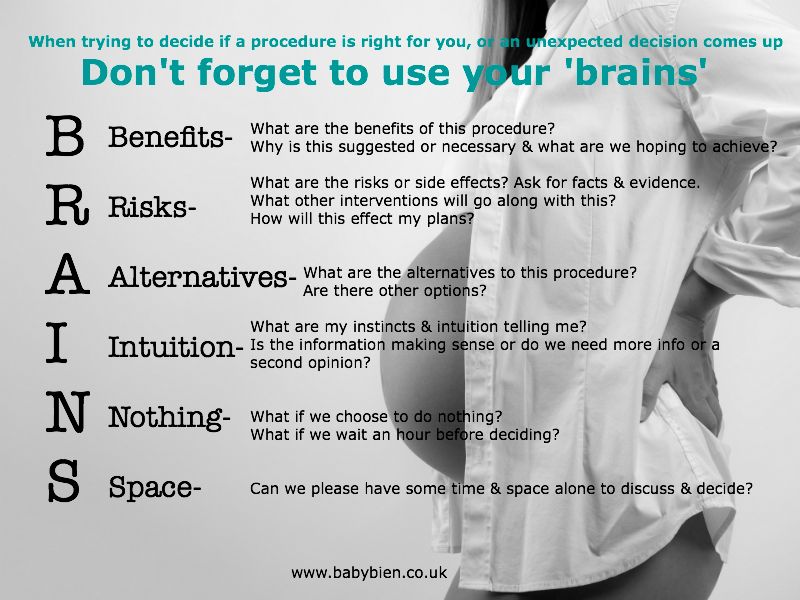Module 7 : Support
This module is for the Birth Partner. The Support.
Being an expectant parent is a very exciting event. But it can be very difficult for the Dad (or birth partner) to feel involved and part of the process before Baby arrives. I remember my partner telling me that, when I was pregnant with our son, he felt like all the attention was on me. He didn't mean that in a jealous way. Every time we told people our happy news their response would be to congratulate me, to hug me, to touch my bump. I was the one who was physically pregnant but WE were expecting a child. It was OUR happy news.
For women, pregnancy is very real and we feel it physically right from the start. I knew, as many women do, before I took a test that I was pregnant from the changes I felt in my body. I was inexplicably tired and my boobs felt enormous. The physical symptoms of pregnancy aren't always much fun but they give us an immediate connection with our baby. The pregnancy feels real because we are experiencing it with our whole body. It is magical when we can feel our unborn child move.
For men, the experience can be very different. Many men find it difficult to connect with the Baby until it is born. They can feel excluded from the process and often as nervous about the birth as their partner is. Antenatal classes often focus on the mother and leave Dads feeling unsure of their role during the birth and therefore if they'll be able to cope with the experience. You may feel excluded or detatched from the process, unsure of what is expected of you or scared that you will let your partner down and not be able to support her in the way she needs you to. This is common and perfectly normal. What this sections aims to do is give you a clear idea of what your role is and how you can help your partner as calm and relaxed as possible throughout labour.
You are a vital part of the birth and there is so much that you can do to help your partner stay calm, relaxed and control during labour.
Emotional Support
You may have noticed that a pregnant woman can be quite emotional. All of the lovely hormones that are helping her body grow your beautiful baby can also wreak havok with her emotional state. This is likely to be the case even more so during labour. She will feel vulnerable, emotional and will need to feel that you are there to support her and make everything ok. This is a time to bite your tongue, hold back on the inappropriate jokes and put her emotional needs first.
The more safe, loved and supported a women feels during labour, the more easily she can stay calm, relaxed and allow her body to give birth naturally and easily.
Create the right environment
The birth environment will have a huge impact on your partner's emotional state. Remember that the perfect birth space is:
- PRIVATE
- SAFE
- QUIET
- DARK
- WARM

Make any changes necessary to the environment (whether that's at home, birth centre, or hospital). Dim the lights if possible. Make sure she's warm enough (get a blanket or ask for one if not, get the cosy socks from her hospital bag for her). Make sure that the room feels private (keep the door closed, minimal amount of people in the room). If there's lots of noise ask people in the room to be quiet during contractions, or put music on to drown out any external noise.
You can find more info on how to create the right birth space in module 4. It's a good idea to discuss this with you partner beforehand so you know what she would like her birth environment to be like and you can help her achieve this.
Be her cheerleader!
(Fancy dress not required). Be on her side and listen to her. Remind her how well she's doing and that she can do this!
Physical Support
Just being there, being present, is actually already a huge support. But now is also a good time to show off all the techniques that you know can help your partner to stay calm and relaxed. The key things that you need to focus on are:
Massage
The most important thing is that your partner feels safe, loved and supported. The easiest way for you to do that is through touch. A simple hug or hold of the hand is a great place to start (it all helps to get the oxytocin flowing!). If it feels appropriate you can also use some of the massage techniques from module 6. Practise these before the birth whenever you can - 5 minutes before bed each night or just while you're watching TV together. It's a great way to help your partner relax during her pregnancy and will also get you lots of brownie points! Don't worry too much about your technique, just do what feels right to you and also listen to your partner (if she seems to be enjoying it then you're doing a good job!). Remember that if she's focussing on you and your touch then she is less likely to be focussing on her contractions or worrying about what might or might not happen next.
Also be aware that, however good your massage technique and how much your partner seemed to enjoy your practice sessions, some women just don't want to be touched during labour. I'm sure your partner will make this clear to you if that's how she feels, but remember it's not personal.
Breathing
It's important that your partner keeps her breathing deep and relaxed - this will help her stay calm and also make sure that her body and the baby get enough oxygen. Watch out for any signs of stressed breathing (short, fast paced breaths or holding her breath) and remind her to breathe calmly. If she does show any signs of stressed breathing then use the 'mirrored breathing' technique from module 5 to help her regain calm. Look out for signs of tension, particularly in her jaw and use the 'Horse breathing' technique when needed.
You can access a printable handout covering all the breathing techniques from module 5 by clicking on the link below.
Breathing techniques
Practical Support
Be in charge of logistics. You can be responsible for all practical aspects - getting to the hospital, remembering (& carrying) the hospital bag, change for the car park, letting family/friends know info as and when they need to know. Discuss these things beforehand so that you both know what needs to be done. Women (especially pregnant ones) generally like to feel in control. Actually, during labour it's more beneficial if she can switch off and let you take over the practical stuff so that she can focus entirely on keeping nice and relaxed.
Dealing with Medical Staff
One of the key things you can do is take control with medical staff. I know this can sound daunting (my other half was nervous about this and felt 'who was he to question a midwife with 20 years experience?'). It's not about being awkward or working against the medical team supporting you. It is about understanding your rights and choices, what your partner (and you, both) want from the birth experience, and maintaining control.
Not all women going into labour in a hospital setting are informed or prepared. More often they are scared and in pain, caused by the fear, tension and adrenaline (see module 2 for more details about this). Medical staff are used to dealing with women in this state and sometimes the preferences and emotional state of the woman giving birth can be overlooked.
Of course we are incredibly lucky to have access to the medical care available to us and, when necessary, medical intervention saves lives. It is however important to understand that some intervention may be offered purely as a routine procedure, not because it is essential. It might not be the right option for you and your partner.
But how are you and your partner supposed to know what is an essential procedure and what is just routine protocol? How can you question a doctor/midwife with years of medical training and experience?
The first question should always be:
"Is my baby or partner in danger?"
If the answer is 'No' then you can ask for some time alone together, 30 mins or so, and then just see what happens. Sometimes being able to relax a little without anyone else there can be enough to get things moving along.
If the answer is 'Yes' or you keep being offered the same procedure then use your BRAIN. This is just a series of key factors to consider before making a decision.

Never be afraid to question the medical team. You are not questionning their knowledge or experience and it's important that you are making informed choices, rather than being pushed to make decisions that you don't feel sure about. It's not about refusing medical intervention for the sake of it, it's about making sure that you have all the information that you need to make the decision that is right for you, your partner and your baby.
What to do When
You know what to do and if you are supportive and loving towards your partner during the birth then you'll be able to help her in the best way possible. There is a small chance that you're mind will go completely blank on the day though so, just incase, I've prepared a handy little checklist for you which you can print out and take along with you (put it in the hospital bag along with the birth plan and other handouts). You can refer to it when you need to, just click on the button below.
Birth partner checklist
Please remember that the FB group is for you as well, not just for Mums. Please also feel free to email me at: [email protected] if you have any concerns that have not been covered here.
